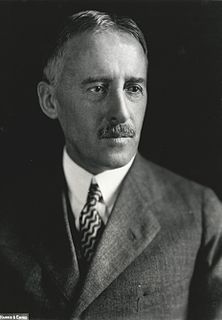A Quote by Nancy Pelosi
The word 'campaign' is a war term. So when you go into a campaign you just prepare to go to war. If you think this is an exercise in civic activity... then you are going to be surprised.
Related Quotes
To have security against atomic bombs and against the other biological weapons, we have to prevent war, for if we cannot prevent war every nation will use every means that is at their disposal; and in spite of all promises they make, they will do it. At the same time, so long as war is not prevented, all the governments of the nations have to prepare for war, and if you have to prepare for war, then you are in a state where you cannot abolish war.
I think there's very many paths to a nomination, and they don't all necessarily go through the bloggers. I don't think we, as bloggers, are all important. I don't think that we can make or break a candidate. I think we are a component, we are a piece of a larger piece of a puzzle. And so, no campaign is going to be able to have it all. No campaign is going to have all the money it needs, or all the media it needs, or all the staffers it needs or all the blog attention it needs. They're going to have various pieces, and there's more than one way to get to the nomination.
Every chance at destabilizing [Bashar] Assad... the bombing campaign causes a flood of refugees into Jordan, there's already half a million in Jordan. I think a bombing campaign - I think it's hard to argue that a U.S. bombing campaign is going to cause less refugees. And I think it causes more refugees and more of a humanitarian disaster. I think it causes, or allows, the risk of Israel being attacked with a gas attack to go up, if we attack Assad. So there's all kinds of bad things.
"The War on Consciousness" is really all physical manifestations and all those problems are ultimately just a war on your way of thinking. Especially now, when we're involved in the war on terror. Terror is a psychological term. Terrorism is a political term. Terrorist is a sociopolitical term. But terror is a psychological thing.
































